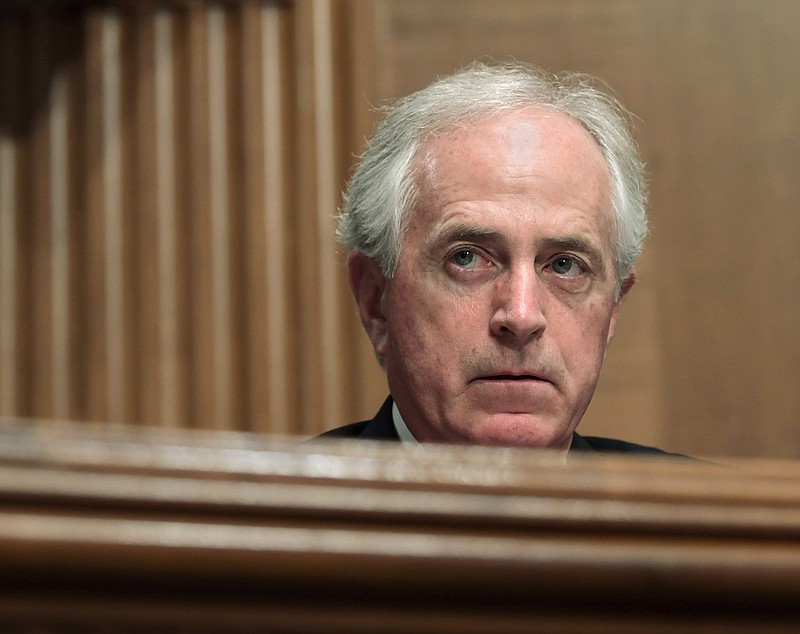Two incidents from the past several days illustrate how desperate the left is to discredit President Donald Trump, his administration or any progress they attempt to make for the American people.
The first came late last week when The Washington Post reported the Trump administration had banned the Centers for Disease Control and Prevention (CDC) from using a list of seven words in official documents being prepared for next year's budget.
The news spread like wildfire, and before the weekend was over it was being reported by every media outlet opposed to the president. Opinion pieces were written around the supposed decision, and news stories were developed about how devastating the non-use of the words - "diversity," "entitlement," "fetus," "transgender," vulnerable," "evidence-based" and "science-based" - would be to special segments of the population.
The only problem was, as CDC officials explained, it wasn't true.
"I want to assure you," CDC Director Brenda Fitzgerald wrote in a series of tweets Sunday, "there are no banned words at CDC. We will continue to talk about all our important public health programs.
"CDC has a long-standing history of making public health and budget decisions that are based on the best available science and data and for the benefit of all people - and we will continue to do so," she said.
Earlier, the center's spokesman had tried to explain agency policy, but the anti-Trump media train already had left the station.
"The assertion that HHS (Department of Health and Human Services) has 'banned words' is a complete mischaracterization of discussions regarding the budget formulation process," spokesman Matt Lloyd said in a statement. "HHS will continue to use the best scientific evidence available to improve the health of all Americans. HHS also strongly encourages the use of outcome and evidence data in program evaluations and budget decisions."
Undaunted, The Washington Post and other media outlets who'd run with the story used anonymous spokespersons and former employees to try to boost any aspect or shred of truth there was about the story.
The left New York Times, for instance, in a report quoting "a former federal official who asked not to be named," "a former CDC official who asked not to be identified" and "some people" and using the phrases "it is not clear" and "I don't know exactly who said what," indicated if there was any truth in the original report it was "not so much a ban on words" as a recommendation "to avoid some language to ease the path toward budget approval by Republicans."
The two are distinctly different strategies, but why let the facts get in the way of a good story?
The second incident came late in the weekend after Sen. Bob Corker, R-Tenn., had indicated last Friday he planned to vote for the Republican tax plan, virtually assuring its passage this week, despite his earlier reservations. It was alleged in a subsequent Business Insider article by a former Democratic strategist that Corker had changed his vote after insisting - and getting - insertion into the bill of a provision that would enrich him financially through his real estate holdings.
However, the former Chattanooga mayor and his congressional colleagues hit back at the allegations and the subsequent lies that - again - were spread with information that was untrue in an attempt to derail the tax bill.
Sen. Orrin Hatch, R-Utah, chairman of the Senate Finance Committee (of which Corker is not a member), said the provision had been introduced Nov. 2 by his House counterpart, U.S. Rep. Kevin Brady, R-Texas. Corker said he not only was not a member of the tax-writing committee and had no involvement in the legislation but was unaware of the provision and wondered in a letter to Hatch how he had been singled out.
Hatch, in a return letter, said the allegation took "a great deal of imagination - and likely no small amount of partisanship" and was "categorically false." Brady termed it "baloney."
By then, the lies, including by House Minority Leader Nancy Pelosi, who was referring to the "Corker kickback" as a way for Republicans "to enrich their donors and themselves," had begun spreading.
We have made it clear our preference was for a corporate-centered tax package that would make U.S. businesses more competitive abroad and didn't increase the deficit, but we nevertheless abhor the tactics embodied in this most recent effort to derail the tax legislation.
Those antics - about the CDC and about Corker - only work to destroy confidence in the American political process. If the people can't believe the party in power because it's in power, or the party out of power because of what is exposed about what it says about the party in power, where can we turn?
Increasingly, that's a difficult question to answer.
